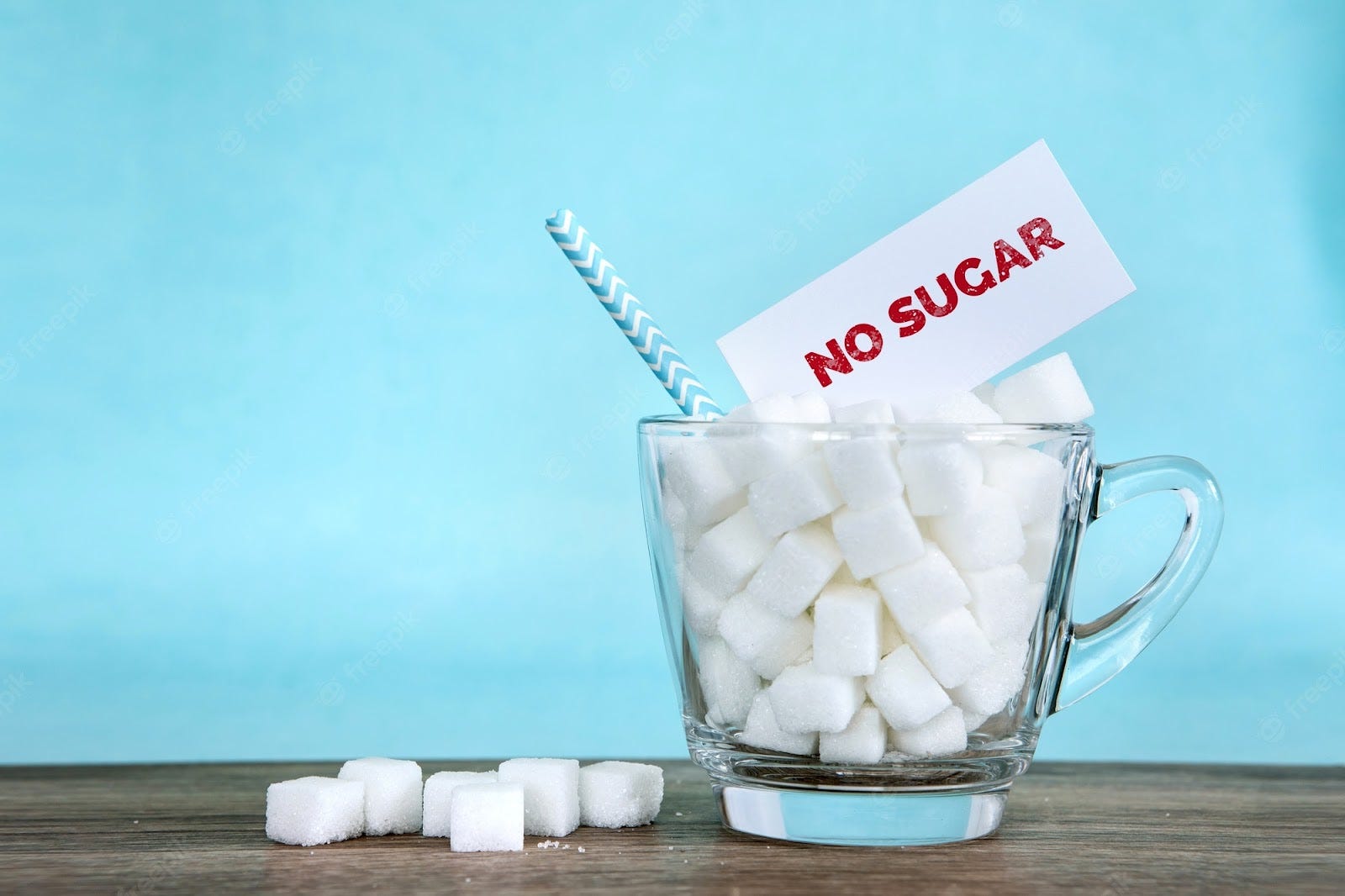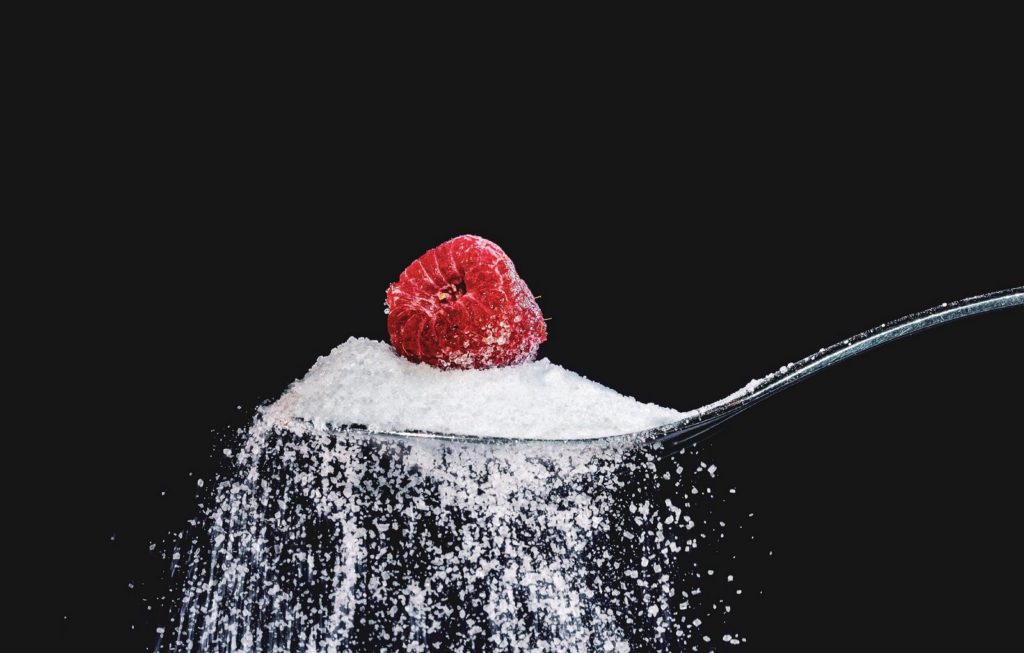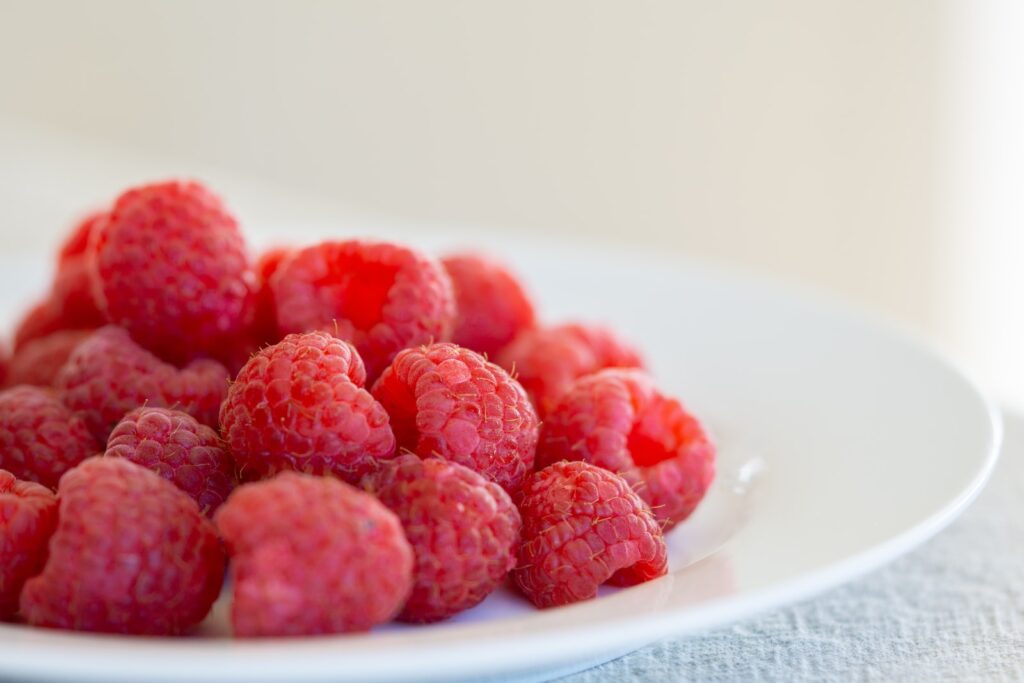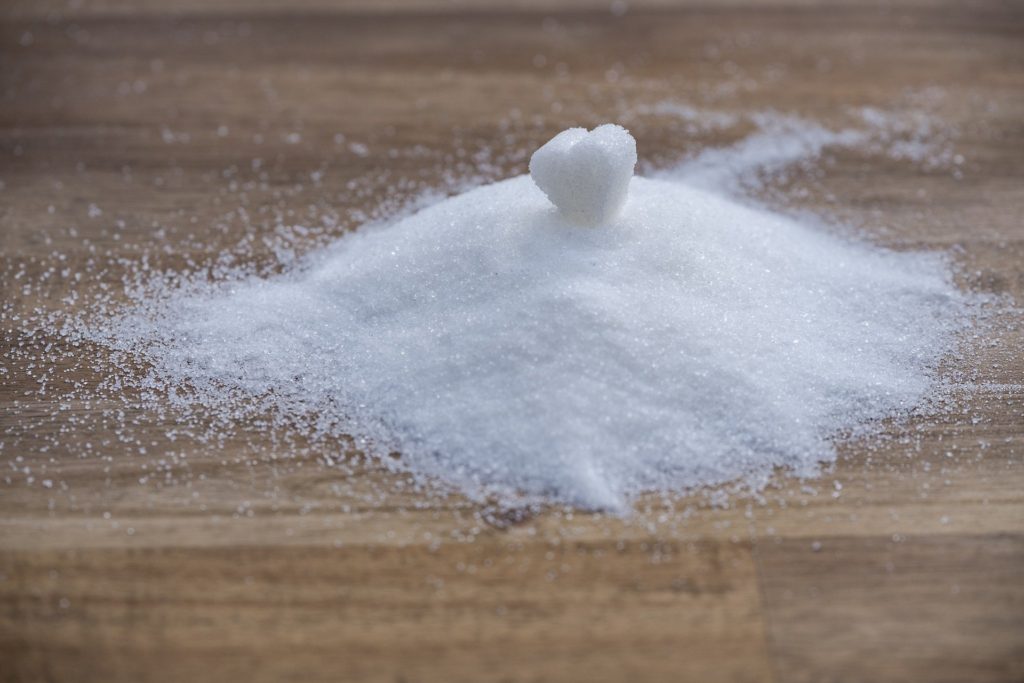Artificial sweeteners can be harmful.
They can cause digestive issues, headaches, weight gain due to increased appetite, and even depression.
But, all artificial sweeteners aren’t the same.
Some artificial sweeteners, like Stevia and monk fruit, don’t have many of these negative effects.
That’s why in this article, we’ll explore the potential dangers of artificial sweeteners and why natural alternatives are a safer bet.
What Are Artificial Sweeteners?
Artificial sweeteners are chemicals that are often added to food products to make them taste sweeter without increasing the sugar content. Sweeteners are often added to diet foods, baked goods, beverages, and other products to help people reduce their sugar & calorie intake.
Artificial sweeteners are chemicals that are much sweeter than sugar but have virtually no calories.
As a result, they’re often used in place of sugar to sweeten food and drinks without adding any carbs or calories.
What Are The Most Common Types of Artificial Sweeteners?
The most common artificial sweeteners are saccharin, aspartame, maltitol, & xylitol.
The reason they’re used the most is that they’re cheap.
But, they also have many negative side effects.

Why Are Artificial Sweeteners Bad for You?
Artificial sweeteners may be bad for you since they potentially can cause weight gain by increasing your appetite for sugar, cause digestive issues, cause headaches, & even cause depression.
Weight Gain
Most people consume artificial sweeteners to lose weight, but they might not help as much as you think. This is because artificial sweeteners have been shown to increase your appetite for sugar. This causes people to eat foods with sugar more, so they start gaining weight.
This is likely because your brain gets the reward chemical, dopamine, from eating something sweet, so then it starts craving sweet foods even more.
So, when you eat artificial sweeteners instead of quitting sweet foods altogether, you eat more sweet foods, that have sugar.
This causes you to start gaining weight.
From my experience, whenever I eat artificial sweeteners, I notice that I start to crave sweet foods more.
When I did this, this led to me finding healthy, but less palatable foods, like vegetables, less enjoyable because my brain was adjusted to eating sweet foods.

Digestive Issues
Artificial sweeteners can cause digestive issues in a lot of people. But, all artificial sweeteners aren’t the same. Some sweeteners, like erythritol and Stevia, don’t cause digestive issues in most people. But, some other sweeteners, like maltitol & xylitol, are notorious for causing digestive issues.
This is because artificial sweeteners have been shown to be pathogenic, which means they cause bad bacteria growth in your stomach.
This would disrupt your gut microbiome and cause stomach aches & possible diarrhea.
From my experience, whenever I eat even a small amount of maltitol, I get really bad stomach aches and diarrhea.
But, natural sweeteners, like stevia & monk fruit, don’t cause these effects because they aren’t pathogenic.
That is why you should always choose natural zero-calorie sweeteners when you can.

Depression
Artificial sweeteners, like aspartame, have been shown to worsen depression symptoms in people who have mood disorders. This can be concerning for people, even without mood issues because it shows that artificial sweeteners can cause something negative in your brain.
Though we don’t know exactly why artificial sweeteners, like aspartame, can cause depression in people, but it might be because of the way sweet foods activate your brain’s reward system.
Sweet foods activate the brain’s reward chemical, dopamine.
You get dopamine whenever you eat sweet foods, go shopping, do drugs, or do anything else that’s pleasurable.
Dopamine isn’t bad for you, it’s just a thing that makes you take action.
For example, early humans would need to climb a tree to get to the honey in a beehive.
But, climbing a tree to get stung by a bunch of bees is a hard thing to do.
But, whenever they would eat the honey, they would get dopamine.
However, in the 21st century where we can eat & drink sweet foods on demand, we get dopamine without doing anything hard.
But, if you don’t do anything difficult and just get “easy” dopamine, your mood would worsen, & if you continued, eventually you’d reach depression.
For me, this was the biggest reason I quit eating artificial sweeteners.
In the first couple of months of my healthy eating journey, I consumed artificial sweeteners as a crutch to lose weight & still eat sweet foods.
They would satisfy my sweet tooth for a little while, but then the cravings would come back stronger.
In addition to that, whenever I would eat artificial sweeteners, for the rest of the day I’d be a little more lazy and tired.
That’s why I quit eating artificial sweeteners around 2 months into my healthy eating journey so I could focus on improving my mental health in addition to my physical health.
Headaches
Artificial sweeteners, like aspartame, have been shown to cause headaches in a small percentage of people. People who have migraines have been shown to be more susceptible to getting headaches after consuming artificial sweeteners.
In that study Vincent Martin, MD, a medical physician at the University of Cincinnati concluded that “Two of the three randomized studies involving aspartame have shown a positive correlation between the sweetener and headache.”
However, he also says that “… you really have to ingest large quantities of aspartame to generate headache. It might be two to three liters of diet soda per day. It also requires prolonged exposure. A headache may not occur with one drink.”
So, for most people, this isn’t a huge issue, but it can make you question if artificial sweeteners are healthy or not.
From my experience, I get a slight headache when I artificial sweeteners, but it’s similar to the headache I get when I eat sugar, so it’s not a huge deal.

How Can I Eat Sweet Foods But Still Be Healthy?
If you want to eat sweet foods but still be healthy, you must eat natural sweeteners instead of artificial sweeteners. For example, choose natural sweeteners like Stevia, monk fruit, inulin, & erythritol, over artificial sweeteners like maltitol, xylitol, & aspartame.
Artificial sweeteners have been tied to a number of potential health issues, but that doesn’t mean all sweeteners are bad for you.
Stevia, along with a few other natural sweeteners, like monk fruit, inulin, & erythritol, is much more natural than other artificial sweeteners so they don’t cause nearly as many issues.
In fact, Stevia, the most common natural sugar substitute, has been shown to reduce blood pressure and maybe a helpful supplement for those with type 2 diabetes.
But, it’s important to remember that artificial doesn’t always mean bad.
For example, erythritol is an artificial sugar substitute, but it doesn’t cause nearly as many issues as other artificial sweeteners.
Now I’ll list my favorite natural sweeteners that don’t cause any issues but still have zero calories.
*I make a small commission when you buy something with my Amazon affiliate links.*

Stevia
Stevia is the most common natural sweetener and it causes the least side effects. Stevia comes from the dried leaves of the Stevia plant.
Stevia is also a good alternative to sugar for those following a low-carb diet like keto.
But, it does have a slight metallic aftertaste which you should be aware of.
Since Stevia is around 200x sweeter than sugar, make sure to only use a little bit of it at a time when you sweeten a food so you don’t go overboard.
If you want to buy stevia, you can buy my favorite Stevia here.


Monk Fruit
Monk fruit is a popular, natural, 0-calorie sweetener that comes from the monk fruit plant. Monk fruit has been consumed for nearly a thousand years in Asia, but it is still the newest natural sweetener on the market.
You can usually see monk fruit at a café with the brown Monk Fruit In The Raw® packet.
Monk fruit has 0 calories, & it’s around 100x sweeter than normal sugar.
Most of the time you’ll see monk fruit mixed with other sweeteners, like erythritol.
My favorite monk fruit sweetener is Lakanto Classic Monk Fruit Sweetener since it’s a 1:1 replacement for sugar.
It’s the most similar thing to sugar I’ve ever tasted that wasn’t sugar.
It tastes basically identical to sugar. But, it does contain some erythritol so it’s not 100% monk fruit.
You can buy my favorite monk fruit from Amazon here.

Erythritol
Erythritol is a common zero-calorie sweetener. Some foods use erythritol by itself, but most of the time erythritol is combined with other sweeteners like monk fruit.
Compared to Stevia & monk fruit, erythritol is more artificial,
But, it doesn’t have many of the bad side effects that other artificial sweeteners have, so it’s still healthy.
In addition to that, because erythritol has basically zero calories and none of it gets fermented by the gut, you don’t get any stomach discomfort when you do eat it.
But, other artificial sweeteners, like maltitol, do ferment in the gut so they do make you bloated.
But, the problem with erythritol is that it’s artificial, so it may cause some health problems for you later in life.
I tried a bunch of different brands of erythritol & my favorite one is this one since it doesn’t have a weird aftertaste like some other erythritol brands.
But, if you want to read my full article about which sweeteners are healthy & which ones are not, you can read my more in-depth article here.

Conclusion
In conclusion, artificial sweeteners have been shown to have potential health issues.
But, the biggest issue with artificial sweeteners is that they activate your brain’s reward system.
This causes you to enjoy other, more natural foods less.
That’s why I, & many other people, quit using artificial sweeteners.
But, if you’re at the beginning of your healthy eating journey or still want to enjoy sweet foods, I recommend choosing natural sweeteners like stevia & monk fruit over artificial sweeteners like maltitol or xylitol.
If you want to learn how I lost 40 pounds with one meal a day fasting, you can read my article here where I discuss how I lost weight with OMAD & how you can too.
- Can You Still Lose Weight If You Aren’t in Ketosis? - February 8, 2023
- Can the Keto Diet Help With Depression? - February 8, 2023
- Why Does Processed Food Make You Fat? - January 2, 2023




